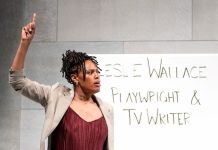Actors, by definition, play all sorts of roles. But for Jennifer L. Nelson—a theater veteran who’s been working on stage and off ever since she landed in DC at the age of 22—the multi-tasking involves more than a mere change in characters or costumes.
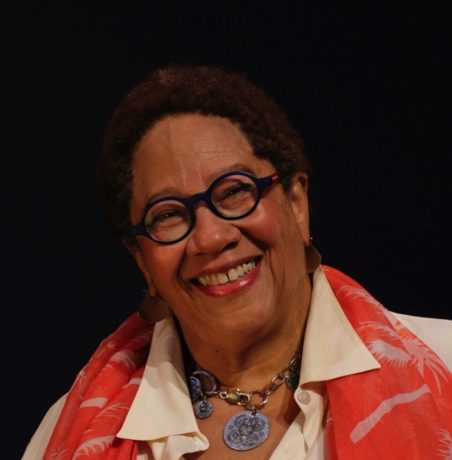
Over the years, she’s been an actor, director, and producer; a playwright and professor; a champion of new audiences; a guide to new funding; a mentor, collaborator, and friend.
Keeping all those roles straight is not easy, but Nelson, who’s been juggling them for most of her life, knows how to do it. And in doing so, she’s played her biggest role of all, helping to turn this city into a mecca for theater.
Now it’s Washington’s turn to return the favor. On Monday, May 13th, the theater community in DC—now one of the largest in the US—will name Nelson as the recipient of its highest honor, the Helen Hayes Tribute. The ceremony is the crowning moment in the annual Helen Hayes Awards show, held this year at The Anthem and attended by roughly 2,000 fans.
News of the honor came out of the blue. “I was shocked and delighted,” Nelson said in a phone interview a few days before the ceremony. The last time she won an award was 20 years ago, for Torn From the Headlines, a play she wrote, directed and produced herself.
“The reason I wrote the play was so that I wouldn’t have to pay any royalties,” she quipped. (The show won both the Helen Hayes and the Charles MacArthur Awards for best new play in 1997.)
But apart from that play, there were no awards. “I felt like an outsider,” she said. “As a person of color, I’m not unfamiliar with that sensation.”
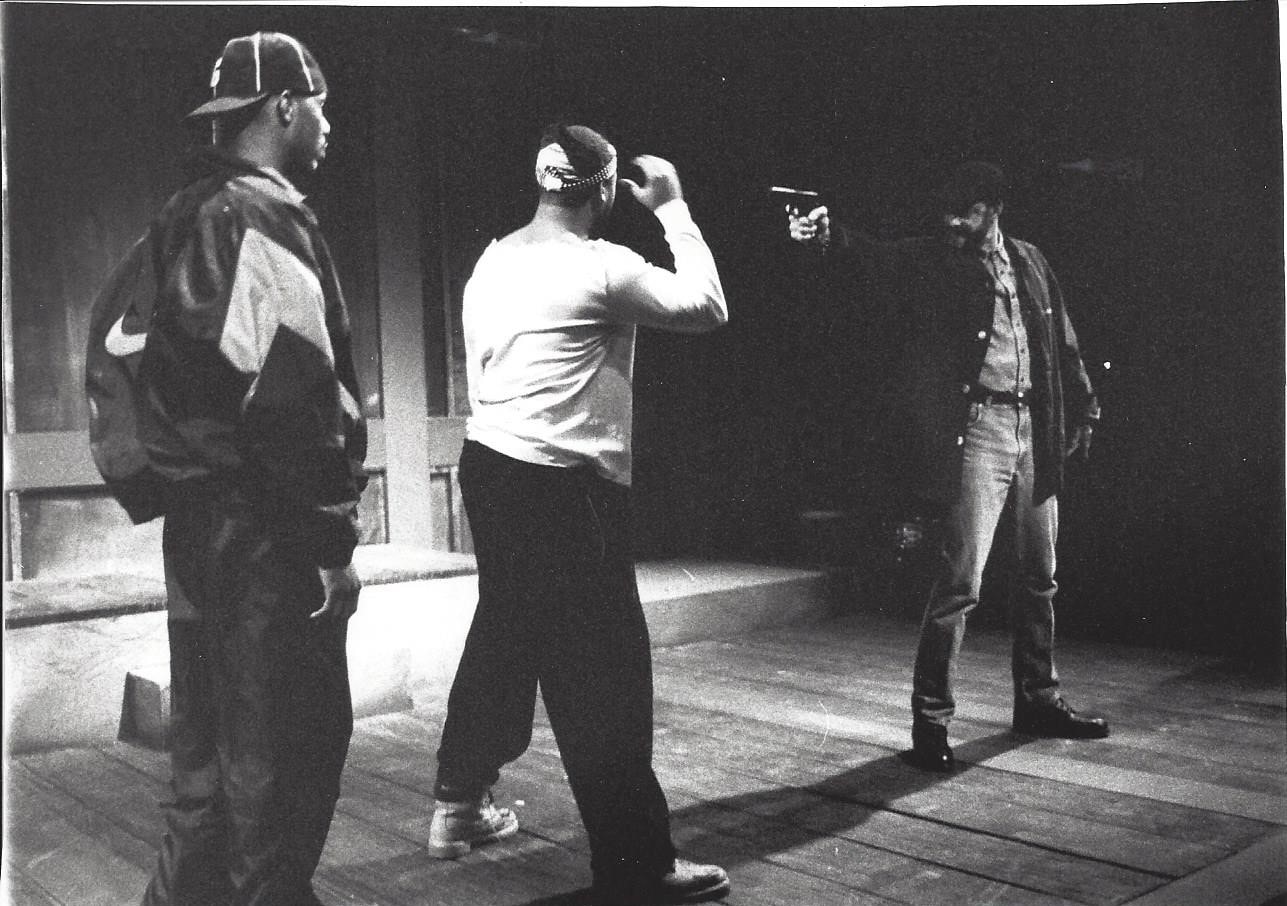
However, the fact that she played so many roles in the theater may have had something to do with being overlooked. Judges are often reluctant to pigeon hole people who’ve been active on many fronts.
Amy Austin, President & CEO of theatreWashington, which sponsors the awards, agreed. “Jennifer Nelson has played many roles in the theater, but most of them have been focused on advancing others,” she explained.
“She’s an exceptional collaborator, an original thinker with a brilliant mind, and a leader who fought for all those she led,” Austin said.
The award, she continued, is a testament to Nelson’s vision, and to her determination to allow other voices—voices that had not been heard before—to be heard on stage.
“However, even though the Helen Hayes Tribute is a salute to the longevity of a theater life, it is not a badge of retirement,” she laughed, pointing out that previous winners, such as Nancy Robinette in 2018 and Ted Van Griethuysen in 2017 are still very active.
Like her predecessors, Nelson—who thinks of herself as semi-retired—continues to be active in the theater world. She is a freelance director—The Gospel at Colonus for WSC Avant Bard and Milk Like Sugar for Mosaic are two of her recent triumphs—and a consultant at Ford’s Theatre.
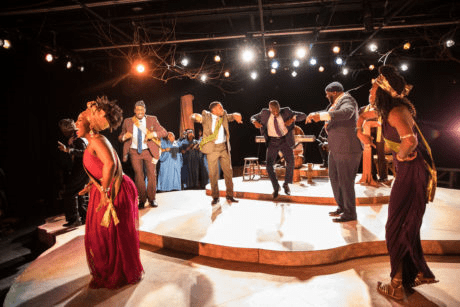
I asked her to go back to the beginning, and she was happy to do so.
Growing up, Nelson reminisced, she was an “Air Force brat.” Her dad, who had been an actor, had joined the military, and they traveled all over. When he retired, the family settled in California, where she completed her undergraduate degree and half of her Master’s at the University of California in Davis.
Her career began with a phone call. She had taken a break from getting her MFA in drama and was living the life of a young actress in San Francisco when the call came.
It was from Robert Alexander, founder of the Living Stage Theatre Company in DC, offering to bring her to Washington, DC for an audition. She grabbed at the opportunity, got the part, and ended up working at the Living Stage for 26 years.
“I did not expect to stay so long,” she said. “At first, I was homesick. I missed my family—my mother and two brothers—and my friends.”
It took a while before she began to think of Washington as home. At one point, in 1978, she even went to New York, thinking to expand her horizons. But she was soon back.
“I realized that DC was home. And the Living Stage was where I belonged.”
At the time, the company was housed at Arena Stage. It was an improvisational theater, committed to social activism and community involvement.
“We brought live theater to audiences who had never heard of such a thing. We loaded our stuff—costumes, sets and all—into a van and drove to where the audiences were.”
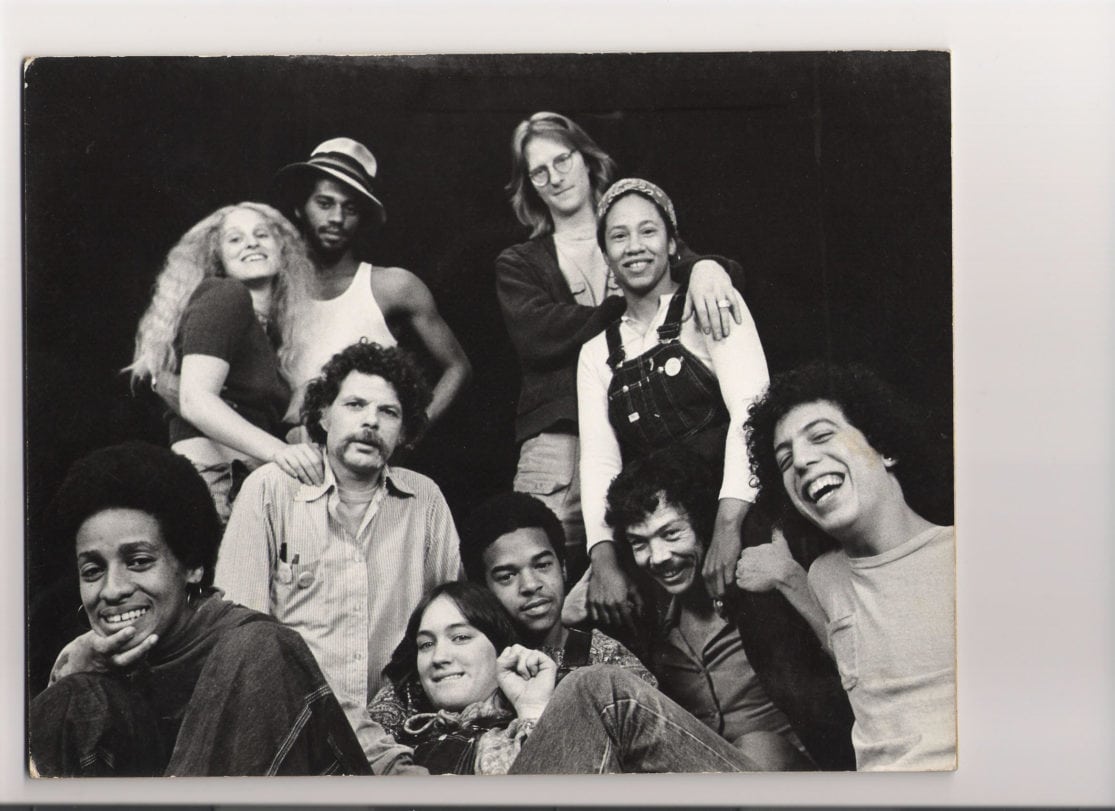
The group performed at schools, hospitals, senior centers, and prisons. One of her favorite places was a women’s jail. Eventually, when they had their own space, they reversed the process and used the van to bring the audiences to them.
In the end, she left Living Stage—after nearly three decades—when she was told that the top position, for which she was more than qualified, would have to go to a man.
Her career—like that of many women who decide to step out on their own—took off.
She quickly joined the African Continuum Theatre, a coalition of community theaters with more determination than money. Her first step was to teach the group how to operate in a more businesslike way, principally by finding grants and sticking to a budget.
Her second act, as the group’s Artistic Director, was to meld it into a single theater company, performing at the Source on 14th Street. (The Source, thanks to Pat Murphy Sheehy, its retired director, is still home to several small companies.)
“Many young actors and designers got their start at African Continuum (known as ACTCo),” Nelson said. “We had the support of foundations, a paid staff of four, and a high level of sophistication.” But after 11 years, it was time to move on again.
Her next stop was Ford’s Theatre. She stayed there for seven years, then stepped down to assume the life of a freelancer, which is a role she continues to play at Ford’s and Mosaic.
At one time, ironically, she was president of the League of Washington Theatres—precursor to theatreWashington and the original sponsor of the Helen Hayes Awards. In addition, she has taught on nearly every campus in the area, including Georgetown, George Washington, and American Universities, the University of Maryland and Virginia Commonwealth College.
“I love this city and I love theater,” she said, “Theater is what got me here, and theater is what’s kept me here.”
Although she was instrumental in the growth of the city’s theater scene, its development continues to amaze her. “People forget that there were very few theaters in DC in the early 1980s. And there was no African-American theater to speak of,” she said.
“Yet now, DC is a destination for actors. They come here for a role and they decide to stay.”
The reason, Nelson believes, is that Washington offers the possibility of a lifestyle that big cities, such as New York, cannot equal. Its success, she added, is due to the DC area having an educated audience base that actually loves going to the theater.
Although she has written and produced three of her own plays, she prefers directing to writing. Playwrights she admires most include August Wilson (Nelson has directed eight of the 10 plays in his Pittsburgh Cycle), Athol Fugard, and many of those whose work has been presented in the annual Women’s Voices Festival.
She owes a special debt of thanks to Zelda Fichandler, one of the founders of Arena Stage and its leader for 41 years. The two became friends when Fichandler arranged for the Living Stage to take up residence at Arena. “She really supported me through good times and bad.”
Just before Fichandler died, she telephoned Nelson to compliment her on a new play she had directed.
“She was terribly ill,” Nelson said. “I knew she was dying. But she managed to say ‘What a good job.’ It was like God calling. I cried.”
The 35th Annual Helen Hayes Awards will take place on Monday, May 13, 2019, at The Anthem, 901 Wharf St SW, Washington, DC. For tickets, go online.



